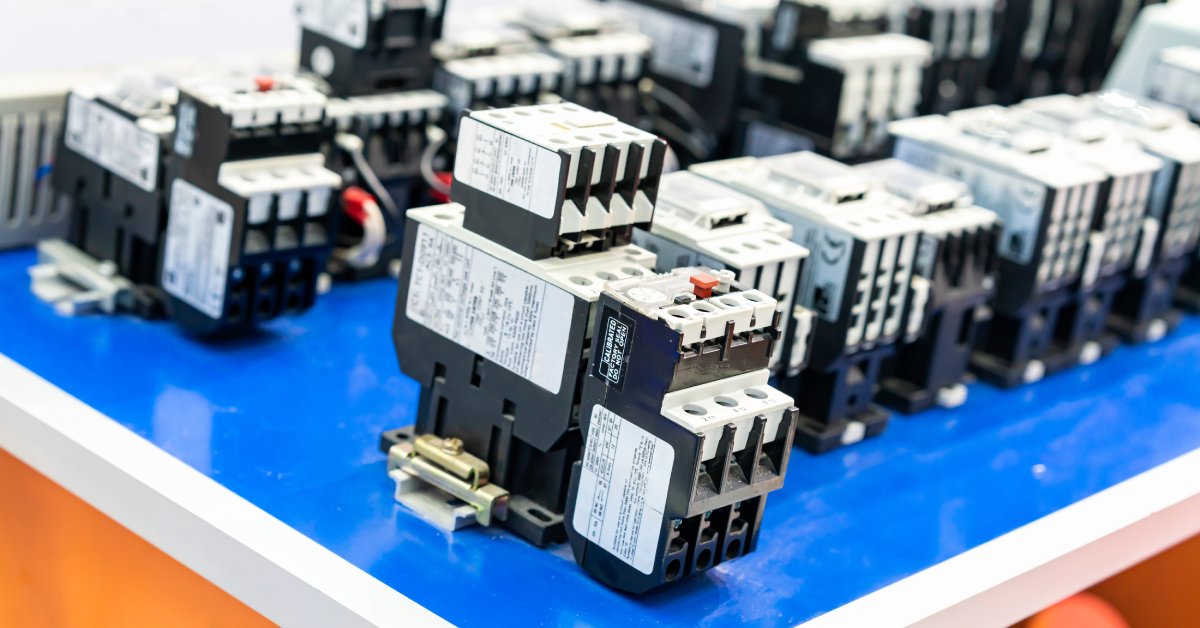How To Determine What Electrical Contactor You Need

Selecting the right electrical contactor is crucial to ensuring your electrical systems operate efficiently and safely. Whether powering industrial machinery or managing residential circuits, the contactor acts as a vital switch, regulating the flow of electricity to your equipment.
While the wrong choice could lead to system malfunctions or hazards, the right one ensures smooth operations and longevity. If you’re short-circuiting while trying to determine what electrical contactor you need, our guide below will illuminate the path to finding the perfect contactor for your project.
Understanding the Basics of Electrical Contactors
Before purchasing an electrical contactor, you must understand what they actually do. An electrical contactor is a switch to control and distribute electrical power to various devices such as motors, lights, and heaters. There are many different types of electrical contactors to familiarize yourself with, from magnetic to solid-state and mechanical ones.
The three most critical elements to understand before picking a contactor are voltage, current, and horsepower. Voltage indicates the amount of electrical pressure a system operates under, while current refers to the flow of electricity through the circuit. Lastly, horsepower relates to the power capacity of the motor or device it controls.
Steps To Find the Ideal Contactor for Your Application
When determining what electrical contactor you need, there are many factors to consider. Your system’s requirements, current rating, and environmental conditions should all influence the decision.
Identify Your System’s Electrical Requirements
The first step in selecting the right contactor is understanding your system’s electrical needs. Start by determining the operating voltage of your equipment or circuit. Is it a single-phase or three-phase system?
Knowing the voltage ensures the contactor can handle the electrical load safely and without failure. If you want to improve the energy efficiency in a hotel, you could start with an energy audit of the HVAC system and install electrical contactors to help conserve energy.
Calculate the Current Rating
Next, figure out the current rating of your system. You can typically find this information on equipment labels or in user manuals.
It’s crucial to choose a contactor that can handle the current without overheating or becoming a weak point in your system. An undersized contactor can lead to failure, while an oversized one may unnecessarily increase costs.
Account for Environmental Conditions
Finally, think about the conditions where the contactor will operate. Outdoor and industrial settings expose contactors to dust, moisture, and vibrations. Selecting a contactor that can handle these conditions ensures reliability, reduces the risk of failure, and increases the component’s lifespan.
Choose the Right Contactor for Safety and Efficiency
Selecting the right electrical contactor is vital to maintaining your systems’ safety, efficiency, and reliability. By understanding voltage, current, and environmental conditions, you can confidently identify the contactor that meets your specific requirements.
Making an informed decision will save you time, money, and potential hazards down the line. Whether upgrading an existing system or setting up new equipment, take the time to choose a contactor that best fits your needs.



3 Comments
Rose
I want to replace my ancient thermostat – I haven’t figured out how to know what kind to get…. so I keep putting it off – this year for sure, I need to determine the right kind of eletrical contractor for this job with this info!
gloria patterson
A lot of good information here…………. AND I CAN SAY I AM SO GLAD I LIVE IN A APARTMENT
Having a home is expensive if you don’t how to do stuff. So glad I move to a apartment!!!!!
Terri Quick
Thank you for sharing